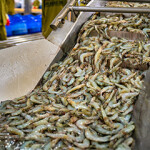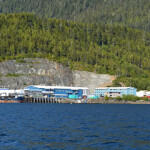Nueva Pescanova opens aquaculture research center in Spain

Nueva Pescanova has opened the Pescanova Biomarine Center, an aquaculture research facility, in O Grove, Pontevedra, Spain.
The 4,000-square-meter center, built at a cost of EUR 7.5 million (USD 8.6 million), will conduct research into the health and welfare of farm-raised seafood, as well as seeking to pioneer aquaculture processes for species currently only found in the wild.
The research center has already initiated research collaborations with technology companies, Spanish universities, and private and public research centers, including the use of artificial intelligence and big-data technology in shrimp aquaculture. According to the company, the project has achieved 100 percent real-time digital monitoring of a pilot shrimp farm, “boosting the efficiency and sustainability of the farms, guaranteeing food traceability, and improving animal health and welfare,” the company said.
Nueva Pescanova currently farms shrimp in Nicaragua, Guatemala, and Ecaudor; and turbot in Spain, and the company sees aquaculture as “a complementary activity to fishing [aiming] to ensure the availability of marine resources for future generations, while promoting greater protection of wild fishing grounds,” according to Nueva Pescanova Group President José María Benavent.
It also sees aquaculture as a growing profit center, Benavent said.
"Morgan Stanley, in its study ‘The future of Foods,’ published in 2020, forecasts that in the decade from 2020 to 2030, aquaculture will grow at a compound annual rate of 5 percent, reaching a global volume of USD 300 billion [EUR 262 billion] in value in 2030,” he said in a press release.
The company has also led the commercialization of octopus aquaculture, with its first farm-raised products to be sold next summer, Benavent said.
The new center has a solar park that will produce around 300,000 kWh annually, reducing its carbon footprint, and a museum “that spreads awareness of the importance of preserving marine ecosystems for the future development of the planet and provides an overview of the history of aquaculture as well as its benefits, future, and new technologies to guarantee animal welfare,” the company said.
Photo courtesy of Nueva Pescanova






Share